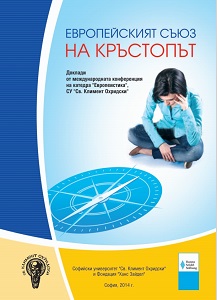Overcoming the Crisis of Post-Accession Conditionality of the EU: Lessons Learned from the CVM’s Failure
Overcoming the Crisis of Post-Accession Conditionality of the EU: Lessons Learned from the CVM’s Failure
Author(s): Georgi Dimitrov
Subject(s): Politics / Political Sciences, Politics, EU-Approach / EU-Accession / EU-Development
Published by: Университет за национално и световно стопанство (УНСС)
Keywords: EU Integration; EU Accession; Convergence; Mechanism of Cooperation and Verification; CVM
Summary/Abstract: On the 3th of February 2014 the European Commission published an unprecedented report on the state of the rule of law in the EU and the related quality and effectiveness of the anti-corruption policies in each Member State. It is extremely important that for the first time the EC officially recognizes the existence of this key problem which the sustainability of the democracy and the economic development depends on. Even more important is that this problem is seen as a priority common task for the development of targeted anti-corruption policies, which in each national case should be resolved by applying a set of specific measures. A month later the EC introduced to the European public a new Framework to safeguard the rule of law in EU (FSRL) which made clear that the EU anti-corruption report is a component of this new political instrument. At this point it is beyond any doubt that the EC’s concerns about the abuses of the rule of law, which is ‘at the heart of EU’, are serious and the Commission is ready to respond adequately.
- Page Range: 160-175
- Page Count: 16
- Publication Year: 2014
- Language: English
- Content File-PDF

